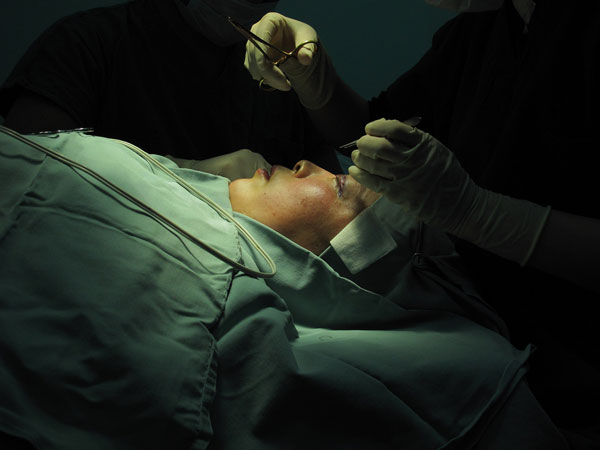
 |
|
The operation is ongoing. [Photo/China Daily] |
BDD patients are concerned about minimal or imagined appearance flaws, and feel insecure and unhappy.
Some will resort to cosmetic procedures but can't find satisfaction in them, Li says.
BDD often exists alongside other mental disorders, including obsessive compulsive disorder, depression and anxiety.
"That's not to say everyone who gets multiple plastic surgeries are addicts or have BDD," Li explains.
"But there's a likelihood they're not psychologically healthy."
Family and friends should be concerned if a person feels unhappy if they don't receive cosmetic surgery and or regrets having them but can't resist the temptation to get more.
Another red flag is impaired social functioning, such as an inability to work or self-imposed isolation, resulting from preoccupations with cosmetic procedures.
"Family and friends should form a support network to help rid them of paranoid and obsessive thoughts and behaviors related with cosmetic procedures," Li says.
"The best thing they can do is persuade the person to seek professional help."
